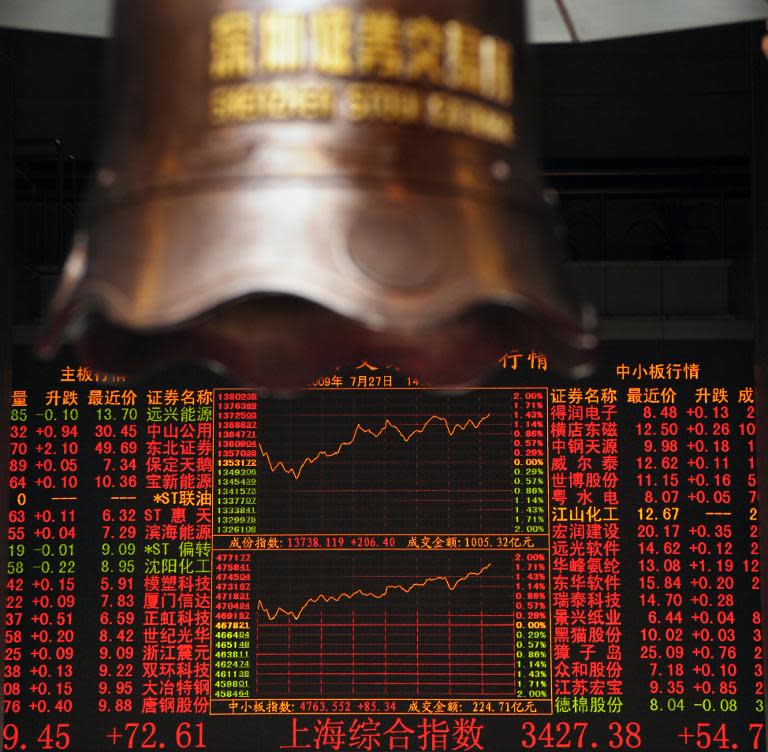China to link Shenzhen, Hong Kong stock exchanges
China will link trading between its Shenzhen and Hong Kong stock markets as part of a push for financial reforms, Premier Li Keqiang said Thursday, following a similar scheme with Shanghai's flagship bourse. The "Shenzhen-Hong Kong Stock Connect" trial will be launched "at an appropriate time", Li told the opening of the annual session of the National People's Congress, China's Communist-controlled legislature. He gave no further details. In November, China's main stock exchange in commercial hub Shanghai and the market in Hong Kong, a special administrative region of China, began allowing investors on each exchange to trade selected stocks on the other through their existing accounts. The Shenzhen exchange, located just across the border from Hong Kong in the southern province of Guangdong, has dedicated boards for technology firms and smaller companies, and daily trading volumes sometimes exceed those of Shanghai. "This will accelerate the internationalisation of the A-share market, which will have significant long-term effects on liquidity and investment style," BOC International analyst Shen Jun said, referring to China's domestic share market. "So it not only concerns the capital markets but also China’s financial reforms." Shenzhen stock investors were unimpressed by the announcement, with the market flat at midday on Thursday. Shenzhen's benchmark composite index surged 33.8 percent in 2014 and has risen more than 18 percent so far this year. Hong Kong's Hang Seng Index was down 0.17 percent by the break. Officials trumpeted the Shanghai link as the opening up of China's closeted stock markets to the outside world, as it gives foreign investors access to Chinese companies not quoted elsewhere. But trading through the scheme has been lacklustre. The creation of the trading platform between Hong Kong and Shanghai was also seen as a key step towards making China's yuan currency freely convertible. But the scheme is still subject to strict limits in order to preserve capital controls in China, where Communist authorities keep a tight grip on the yuan, also known as the renminbi (RMB). - Crackdowns - China granted an initial cumulative quota of 250 billion yuan ($41 billion) for mainland investors to trade Hong Kong stocks, while 300 billion yuan was allowed for foreigners on the Shanghai market. But so far only a little over one third of the Shanghai quota has been taken up, while in the other direction only about 10 percent of Hong Kong's has been used, the exchanges say. Most of China's more than 175 million stock investors are individuals, and financial authorities have sought to entice more institutions -- including foreigners -- into the market for longer-term investment. In his annual policy speech, Li also said China plans to increase its use of foreign investment, at a time when overseas companies are growing wary of the country's slowing growth and regulatory crackdowns. Over the past two years, Chinese authorities have stepped up scrutiny of foreign firms, launching sweeping investigations into alleged malpractice in sectors ranging from pharmaceuticals to baby formula. China will slash by half the number of industries in which foreign investment is restricted while moving towards a "negative list" method of management, Li said, but gave no further details. The country's first free trade zone in Shanghai is now using a negative list, which specifies what is barred, technically allowing all other business activities not mentioned.



